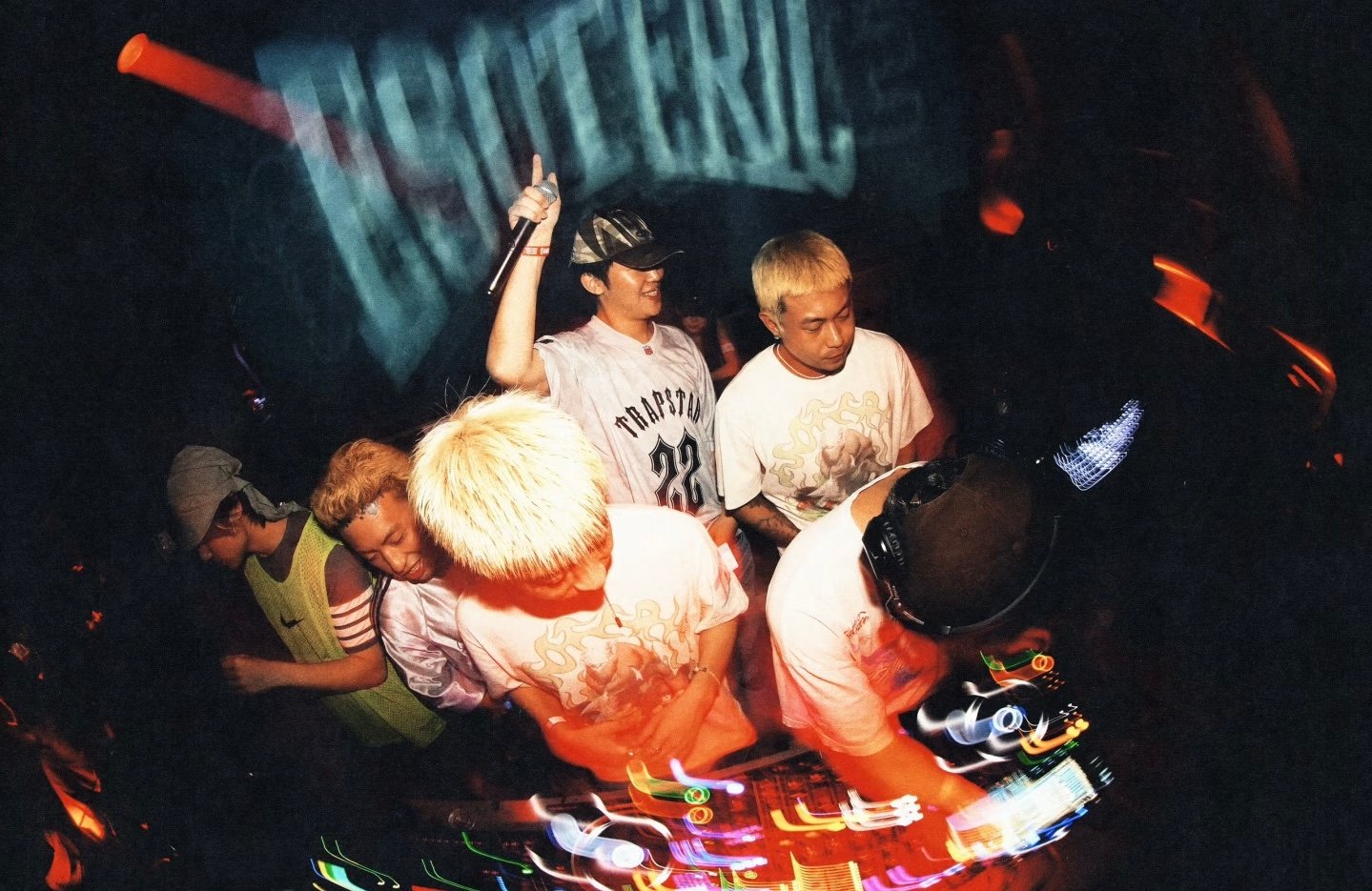Singles’ Day, taking place on 11.11, has grown into a shopping event that dwarfs its American counterparts Black Friday and Cyber Monday. Leading up to this year’s commercial bonanza, here’s some background on the development of the “holiday” over the years.
WHAT IS SINGLES’ DAY?
The origins of Singles’ Day, or 光棍节 guanggunjie, are usually traced back to 1993 and Nanjing University. The unofficial festival was originally conceived in the school’s dorms as a way to celebrate singleness in the face of Chinese society’s traditional insistence on (heterosexual) coupling up. The day quickly morphed into something more commercial in nature, however, and became an opportunity for people to spend, spend, spend guilt-free – a shopping day for the untethered.
Spotting the opportunity to capitalize on the day’s consumerist tendencies, Alibaba announced in 2009 that its e-commerce retailers Taobao and Tmall would be hosting Singles’ Day sales and promotions. The then-growing online retailer signed up a measly 27 merchants to participate in the event that year, and sales figures were relatively modest. Nonetheless, a shopping phenomenon had been born.
SINGLES’ DAY SALES
Fast-forward to 2012 and Alibaba’s total Singles’ Day sales have surpassed those of Black Friday and Cyber Monday combined — the “holiday” had officially become a sales rush sensation. And the records have kept rising. The day’s sales numbers are now consistently phenomenal, and often speak to broader consumerist trends in China.
In 2014, Alibaba’s Singles’ Day sales topped 9 billion USD in total, with 42.6 percent of that coming from purchases made on mobile devices, after a major push by Alibaba to turn customers onto the Tmall and Taobao apps.
As sales figures have soared, so has the hype. In 2015, Jack Ma’s company teased its Singles’ Day promotions with a four-hour televised spectacle the night before, recruiting foreign actors such as Daniel Craig and Kevin Spacey to make appearances in person or on video as eager shoppers counted down to midnight and the opening of sales. Global brands also started catching on, with 5,000 of them offering Singles’ Days sales for the day. That year, Alibaba’s sales jumped a whopping 60 percent to 14.3 billion USD.
Leading up to 2016’s 11.11 Gala, Katy Perry was dubbed the Singles’ Day “global ambassador,” and other international superstars such as Kobe Bryant were invited to attend the event. The televised mash-up of retail and entertainment kicked off a day of sales for Alibaba that reached a whopping 17.7 billion USD.
NEW ERA, “NEW RETAIL”
That year Alibaba also announced a strategy called “New Retail” – an evolved version of commerce that blurs the line between online and offline shopping and a term that has recently become a buzzy watchword for the company. The idea was that traditional brick and mortar retail locations – convenience stores, malls, grocery stores – could be equipped with technology and integrated into the digital world.
Here’s how they explain it themselves:
In 2017, Alibaba began incorporating New Retail into the Singles’ Day shopping spree in concrete ways. Their online marketplace Tmall opened 60 physical pop-up stores across China, all equipped with AR and other digital shopping technologies such as “magic mirrors” that allowed customers to virtually try on clothes and accessories. They also tested 100,000 “smart stores”, where customers could view the availability of products on digital screens and scan an item’s QR code to purchase it on Tmall.
Naturally, sales records skyrocketed. Their 2017 Singles’ Day sales broke 25 billion USD, 90 percent of that coming from purchases made on mobile devices. There was also a 22-minute film Gong Shou Dao, starring Jack Ma and Jet Li, which premiered as part of the festival, and Pharrell performed a cringe-tastic song with Kris Wu:
The PR hype has continued to build. In 2018, for what Alibaba billed as Singles’ Day’s 10th anniversary (and Jack Ma’s last at the helm), the company launched a space station. The tech giant also announced that as part of the continuing push for “New Retail”, 200,000 mom-and-pop stores would be hosting online sales and offering “augmented reality-based red packets.”
Behind the scenes, Alibaba’s logistics arm Cainiao opened a new warehouse to deal with all the anticipated orders. Naturally, it’s almost fully-automated (joining Alibaba’s automated hotel and automated restaurant in that sense) with 700 robots spinning packages around, which supposedly allows for a 50% increase in processing of orders (compared to slow-moving humans).
Here’s Ali’s own look at the operations, in case you want to see the robots at work:
Cainiao also reportedly chartered 51 flights to Europe, Russia and Southeast Asia for 11.11 2018, with around 1,000 shipping containers heading off to destinations across the globe in the wake of the sales event.
THE FUTURE: STILL NO. 1?
But Alibaba isn’t the only one marking 11.11 with sales. Online retail rival JD.com also offers a range of deals on the day, as does electronics retailer Suning, while Ali has reportedly told companies participating in cut-price shopping app Pinduoduo‘s 11.11 sales that they will be barred from promoting Singles’ Day deals on Tmall.
Alibaba’s 11.11 crown isn’t exactly showing signs of slipping any time soon, but some have argued that there is a growing fatigue for such blatantly consumerist “festivals” among Chinese shoppers, and that from a retailer point of view “these shopping festivals are essentially conditioning consumers into a behavioural loop of withholding purchases till the next festival, then gorging themselves on deals”, as ad tech professional Kenneth Cheung has argued.
Related:
 Alibaba Promotes “Greener” 11.11 Shopping Festival, But Criticism RemainsAs it prepares for its online “Singles Day” consumption-fest, Alibaba has made a press push to promote what it calls a “greener” 11.11 festivalArticle Nov 02, 2019
Alibaba Promotes “Greener” 11.11 Shopping Festival, But Criticism RemainsAs it prepares for its online “Singles Day” consumption-fest, Alibaba has made a press push to promote what it calls a “greener” 11.11 festivalArticle Nov 02, 2019
How long Singles’ Day in its current form survives remains to be seen, but given its immense value in terms of data, not just sales, to Alibaba, it’s clear that it’ll continue to be a heavily-promoted festival of consumerism for some time to come.
—
Full disclosure: RADII was founded by Brian Wong, Vice President of Alibaba. RADII operates with editorial independence.
Cover image composite and infographic by Thana Gu.
Related:
 Infographic: Here’s What Happens in One Minute on the Chinese InternetArticle Sep 25, 2018
Infographic: Here’s What Happens in One Minute on the Chinese InternetArticle Sep 25, 2018
 Alibaba is Launching a Space Station for its 11.11 Shopping FestivalArticle Oct 23, 2018
Alibaba is Launching a Space Station for its 11.11 Shopping FestivalArticle Oct 23, 2018
 China Gears Up for JD.com’s Massive “618 Sale”Article Jun 17, 2017
China Gears Up for JD.com’s Massive “618 Sale”Article Jun 17, 2017
 Alibaba’s Singles Day Gala Blurs the Line between Shopping and EntertainmentArticle Nov 13, 2017
Alibaba’s Singles Day Gala Blurs the Line between Shopping and EntertainmentArticle Nov 13, 2017


















